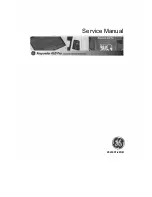
Labtron 222 / V222B Wallmax Professional Aneroid Sphygmomanometer
Inflating the cuff:
Close the bulb’s air valve by turning the
air release valve clockwise. Squeeze the inflation bulb at a
steady rate until the gauge’s needle points at approximate-
ly 30mmHg above the individual’s normal systolic pres-
sure value. If the individual’s normal blood pressure is not
known, it is recommended to inflate to 200mmHg.
Systolic blood pressure reading:
Open the air release
valve slowly by turning it counter-clockwise while holding
the diaphragm of the stethoscope over the brachial artery.
Proper deflation rate is vital for an accurate reading. The
recommended deflation rate is 2-3mmHg per second, or
a drop of one to two marks on the pressure gauge with
each heartbeat.
Do not keep the cuff inflated any longer
than necessary.
As the cuff begins to deflate, listen care-
fully with the stethoscope. Note the reading on the gauge
as soon as a faint, rhythmic tapping or thumping sound is
heard. The first sound is the systolic pressure reading. Al-
ways check with your health care provider to ensure read-
ings are performed correctly.
Diastolic blood pressure reading:
Allow the pressure to
continue dropping at the same deflation rate. Note the
reading on the gauge when the last audible thumping,
swishing, or blowing sound is heard; this is the diastolic
blood pressure reading. After a few seconds have passed
and no audible thumping, swishing, or blowing sounds are
heard, deflate the cuff using the air release valve complete-
ly. Remove the cuff and stethoscope from the arm.
Record the systolic and diastolic readings. Repeat the
measurement two or more times to ensure accuracy. Only
a patient’s physician is qualified to analyze blood pressure.


























